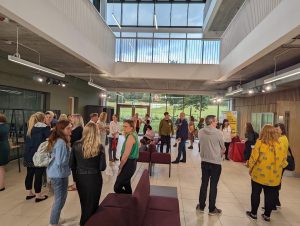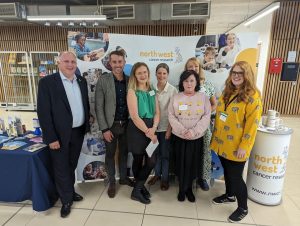The Gynae Narratives team at Lancaster University would like to invite you to join them to celebrate the publication of their forthcoming book We need to talk …about radiotherapy for gynaecological cancer on September 14th 6-7:30pm at Health Innovation One, Lancaster University.
About the event
There will be short talks and networking opportunities with North West Cancer Research and members of the research team from Lancaster and Clatterbridge Cancer Centre. Light refreshments will be provided.
Please register here to attend.
Details of how to find Lancaster University can be found here.
About the book
In We Need To Talk…About Radiotherapy for Gynaecological Cancer, patient experiences of radiotherapy treatment for gynaecological cancer are brought together in the hope that the care for people with a gynae cancer will be as good as it possibly can be for every patient.
Conversations is the theme that frames the book and its key message. Each section is entitled Conversations about… because the experiences revealed that conversations can be difficult to initiate or are easily closed down, even though many issues could be resolved through careful conversations.
At the end of each (short) section, each led by a different member of the research team, there are ideas for Continuing Conversations about… for both patients and practitioners. For patients there is advice, alongside examples of how and what to ask prior to, during and after treatment, and encouragement to ask again if they do not get answers. For practitioners there are questions to encourage reflection, conversation, communication with patients and also to challenge current services. The aim is that questions can be used directly or as prompts, or as part of a support or reading group.
Details on how you can receive a free copy of the book will be posted on this site soon.


